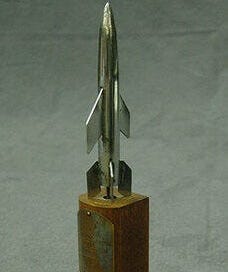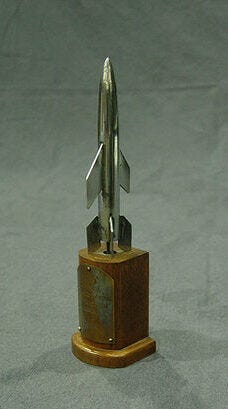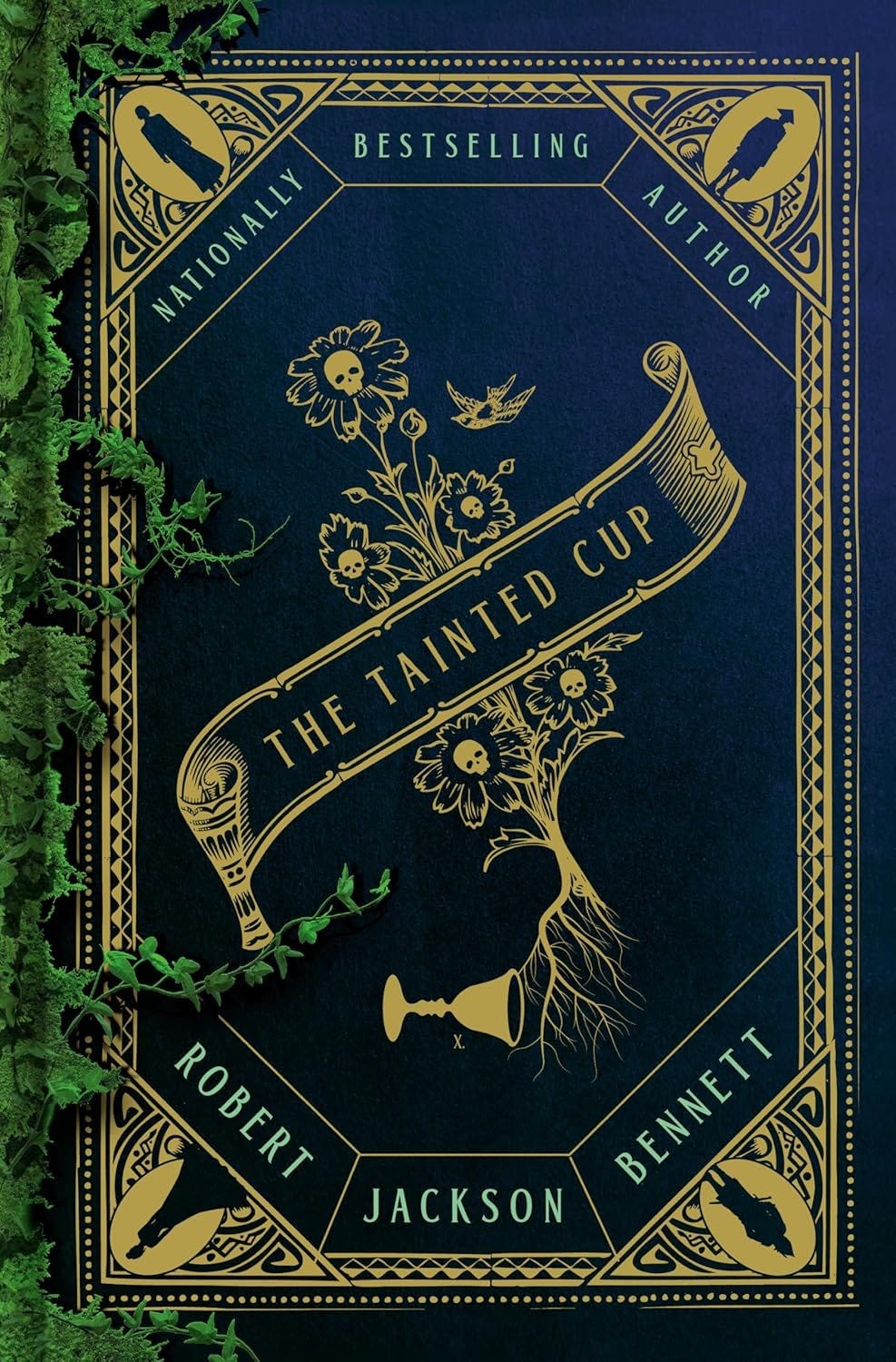This year, I'm going to Worldcon. And that means I get to vote in the Hugo Awards.
The "World Science Fiction Convention" is one of the longest-running science fiction and fantasy conventions, dating back to the Golden Age, the survivor of that day's fandom. It's got its own traditions, which are even charmingly described in some novels like Niven's fun Fallen Angels where a lightly-fictionalized Worldcon helps some stranded astronauts escape a hostile world. And - fittingly as the survivor of Golden Age fandom - Worldcon are the ones who vote on the annual Hugo Awards for the best works of science fiction or fantasy.
I can't call myself a real member of this community, and I don't expect to be able to even after I go to Worldcon. But, they let anyone sign up and get a membership and a vote, so I've signed up.
Looking on the Worldcon part of science fiction fandom - or "Trufen" to use their word - is that a lot of it (though not all) sounds fun. But I could say that about most everything, and I'm sure that I'm getting a skewed picture somewhere as an outsider. The more interesting thing is my opinion of the Hugo Awards - because there, I do have more of an opinion.
In theory, the Hugo Awards represent science fiction fandom as a whole. But in practice, they're voted on by Worldcon. In the Golden Age, perhaps, that difference was irrelevant. Science fiction fandom was much smaller then; a sizeable fraction of fans probably went to Worldcon or joined in the same subculture. But now, with Worldcon's attendance staying roughly flat <5,000 people most years, it's only a small fraction of fandom as a whole. The Hugos - as Eric Flint said years ago in the midst of the infamous “Sad Puppies” scandal - inevitably reflect the "Trufen" specifically, including where they differ from the entire fandom.
That's not necessarily a bad thing. But reading the Hugo nominees this year, I can see some clear clues they were selected by a particular subculture - and one I'm not part of. Of the six novels nominated for the Hugos this year, I've very much enjoyed two, been fine with one more, disliked two, and figuratively thrown one across the room unfinished. My taste significantly disagrees with many of the people nominating the current Hugo candidates.
This isn't a criticism; I'd probably have some differences with any plausible nomination method. What's more, I can see some of where the Worldcon trufen come from and why these books were the ones getting the most nominations and winning places on the finalists' list.
But despite this, I like the concept of the Hugos, on multiple levels. I'm glad there is an award for the best novel; I'm glad there's an award given ostensibly by fans rather than by editors or literary agents or other professionals. Their interests can differ from fans'. Yes, there're differences between the trufen actually voting on the award and the fandom as a whole, but the existence of the award is still good.
And even ignoring how the Hugos claim to represent fandom as a whole, having Worldcon give out awards to the best science-fiction and fantasy works can serve as an excellent highlight and unifying force to the convention. I suppose I have no idea whether it actually does that - I'm looking forward to finding out - but it can.
So, here's my tentative Hugo ballot for the "Best Novel" category, ranked from first to last, with explanations. In the middle, I place "No Award". Traditionally, this's saying works below this aren't worthy of a Hugo; that I'd rather no award be given than they be awarded. "No Award" has occasionally won, but only occasionally.
1. The Tainted Cup, by Robert Jackson Bennett. This mystery set in a fantasy empire isn't the best as a mystery, but it's fun, and well-constructed as a book. The worldbuilding of an empire under siege by magical monsters and facing magical poisons from within is also very intriguing and well put together. There's a setup at the end for a sequel, where our protagonist and the detective he's assisting are summoned by Imperial officials to solve another case; I see the sequel just came out, and I'd like to read it.
2. A Sorceress Comes to Call, by T. Kingfisher. This, I also really liked. All the characters are very well done: our hemmed-in young protagonist, her mother the sorceress's chilling casual menace, the friends she finds in the course of the plot, and more. I am left with so many questions about the world and magic - it's realistic we (seeing from the protagonist's limited view) wouldn't learn these, but this gives the book less of a chance to shine so it's ranked below The Tainted Cup. I've read a few of T. Kingfisher's books - she's the only author nominated I've read anything by before - and they usually haven't been deep, but they've always been fun. This's a fitting book to get nominated; in addition to being fun, it's deeper than the others of hers I've read.
3. Alien Clay, by Adrian Tchaikovsky. This started out interesting but ended up rigging its thought experiment; the alien planet ends up being friendly and helping our protagonists against the tyrannical human government. Still, its characterization is well done, and if I try to ignore that rigging it's well plotted and presented.
4. Someone You Can Build a Nest In, by John Wiswell. There was a lot in this book I didn't enjoy, but I did like the main character - a shapeshifting slime monster who in contrived circumstances ends up pretending to be human and falling in love. Also, I could see the work's technical artistic merit in its nicely-woven themes, despite the flat worldbuilding and many flat characters.
5. [ No Award ]. Above here are the works where I enjoyed parts, and where I could see their merit. Below, I didn't enjoy at all.
6. The Ministry of Time, by Kaliane Bradley. I barely see a shadow of explanation for the government-run time travel dragging people from the past, most of the plot is simply our protagonist's relationship with the time-traveler she's helping adjust to the near-future, and the eventual conflict with the evil government bureau is poorly done.
7. Service Model, by Adrian Tchaikovsky. (Tchaikovsky had two books nominated this year - that's not unheard of, but unusual!) I figuratively threw this book across the room several chapters in, because I couldn't see anything except bad jokes about robots following procedure in inapplicable situations.
Left to myself, what would I have nominated? Well, I did nominate just one book, because at the time there was only one scifi/fantasy book I'd read published in 2024: What Monstrous Gods by Rosamund Hodge. I liked it; I thought it had technical merit; I would've been happy to vote for it. Unfortunately it didn't win enough nominations. (I might look at the nomination results when they're eventually released just to check if it won a single nomination besides mine!) Of these books I've read now, I would've named the top two, or perhaps top three.
Peering at the discrepancy between the "Trufen"'s nominations and what mine would've been, I can tell the "Trufen" are more happy with good characterization than with good plot. Books that positively showcase modern conventional social values help too; that's a major theme in both Ministry of Time (where it makes sense since it's set in the near-future) and Someone You Can Build a Nest In (where it doesn't so much). Also, trufen like hostility to authority - the only book that had even a mixed perspective is The Tainted Cup. Everywhere else the authorities (whether our protagonist's mother in Sorceress Comes to Call, the government in Alien Clay, or the procedure-programmers in Service Model) are the adversaries.
I'm not hostile to any one point here - in fact, I'm enthusiastically in favor of good characterization! But when every book hits similar notes, it can get tiring. When I read books set in other worlds or the future, sometimes I want the societies and protagonists to have strange social values. I feel that's one advantage of reading 1950's sci-fi where the characters hold values close to the 50's: even though it did this point very poorly in the past, it does it better in retrospect now. Also, sometimes I also want to see authorities and institutions not all turn out to be villainous. The Tainted Cup does this decently: despite corruption, the Empire is still clearly a good thing and many of its upper echelons appear well-intentioned in the end even though they weren't at some points during the book.
I'm going to have more to say about the Hugos; I still haven't started reading any of the nominees in the other categories. I've also got my opinions about the design of the award categories, which are going to go in the next post on the short story nominees.
Looking at the nominees, I'm sorry we didn't have a richer crop of novel nominations this last year. Perhaps, if I knew better what was written, I could've made more nominations that I would've liked better. Perhaps a different group of fans would've found more. After the "Sad Puppies" scandal around the Hugos circa 2015 (where the modern culture war came into fandom), the annual Dragoncon set up their own set of awards, which I think was a very appropriate response. I haven't read many of the winners of their Dragon Award, but unfortunately, those I have read I didn't like much either.
But, to look on the bright side - there're two novels here which I wouldn't be at all sorry to see win the Hugo. Hopefully Worldcon will be not too far off from my taste in books and choose one of these two for a Hugo.







I was interested to see your discussion of The Ministry of Time. There was a Spanish TV series by that name starting in 2015 which the wife and I found intriguing, though it dropped off our radar at some point. This sounds like the setup is similar, though set in Britain and from the sound of it rather more facile.
I think I've read everything by T. Kingfisher aka Ursula Vernon. I'll give "The Tainted Cup" a try. thanks.